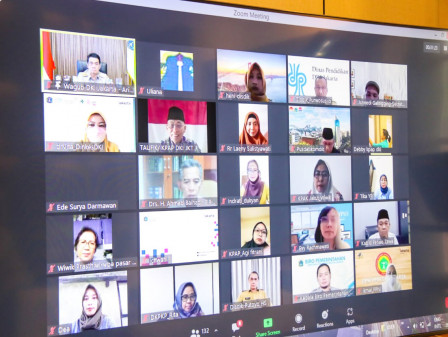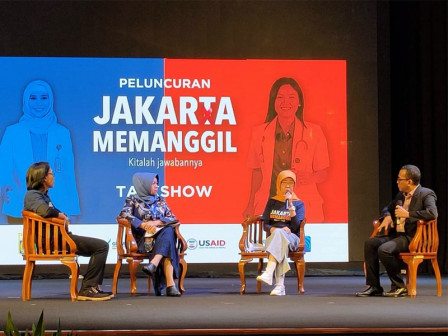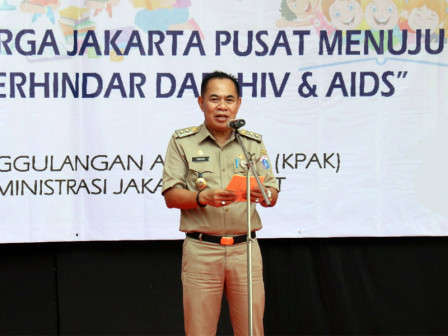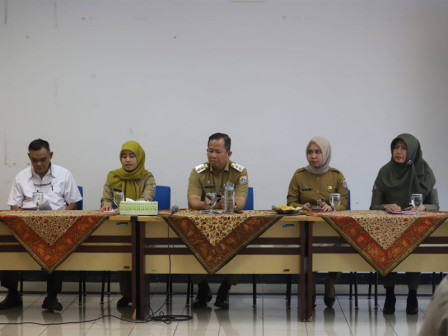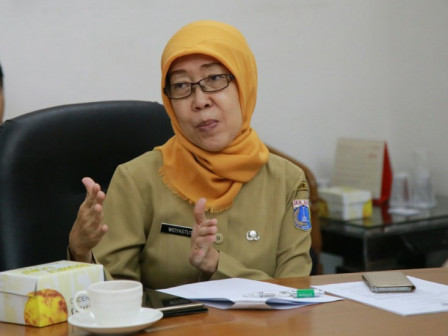Jakarta Pushes Media's Role in Reducing Tuberculosis Cases in People with HIV
Reported by Yudha Peta Ogara | Translated by Nugroho Adibrata
Jakarta Vice Governor Ahmad Riza Patria attended a coordination meeting for the involvement of mass media and social media in eliminating or reducing cases of TB-HIV (Tuberculosis in HIV sufferers) in Jakarta. The meeting initiated by the Jakarta AIDS Commission (KPA) was held online, on Tuesday (4/26).
The media has a big and important role in influencing accurate and reliable public opinion and mindset
To reduce the number of TB-HIV cases, there was a need to increase public awareness through prevention, examination, and treatment of TB-HIV disease in Jakarta. One of them was to increase public awareness, where the Jakarta KPA has strengthened collaboration with various parties, including social and mass media.
By doing so, the Jakarta administration encouraged the mass media and social media activists to be active in eliminating TB-HIV cases in Jakarta.
Jakarta KPAP Holds Workshop on Role of Media in Combating HIV/AIDS"The media has a big and important role in influencing accurate and reliable public opinion and mindset," he expressed while sharing the material, at Jakarta City Hall, as quoted from the Jakarta PPID's Press Release.
Based on the Bylaw number 5/2008 on HIV/AIDS prevention, the KPAP could involve the media industry starting from print, electronic and social media in conveying information to the public.
Therefore, the public was expected to be able to understand how to prevent and treat HIV/AIDS, as well as handle HIV AIDS patients. Thus, they could understand how to interact with people living with HIV/AIDS without the need to isolate them from everyday life.
"What we also need to pay special attention to is the position of the media as a person or public. The cool term is an influencer. This is what must also get serious attention to be invited to collaborate to produce creative content that can help eliminate TB-HIV cases," he explained.
The point was synergy and more intensive collaboration between various parties, ranging from journalists, NGOs, communities, professional institutions, policymakers, and the public. "InsyaAllah, we can fight this disease in the spirit of 'Healthy Jakarta, Free from HIV and AIDS' with a Developed City for Happier People," he added.
As for the information, TB (Tuberculosis) is the most common opportunistic infection (IO) suffered by PLWHA and at the same time the most cause of death in PLWHA. This disease cannot be controlled properly without successful control of HIV, and vice versa. Based on the Jakarta HIV Fast Track cascade until December 2021, the Health Agency (Dinkes) reported that there were 65,916 HIV-positive people and 72,638 PLWHA.
In the HIV control strategy, the term “STOP” is known (which means: Flash, Find, Treat, and Maintain). As for TB, the control is known as TB TOSS (ie Find, Treat, Until, and Heal). In this regard, it is necessary to strengthen coordination and collaboration as well as to accelerate TB-HIV control through several efforts, which include:
a. Strengthen program planning with TB HIV
b. Strengthen reporting record
c. Carry out monitoring and evaluation of TB HIV
"Hope with these efforts, the final goal of AIDS 2030, namely Getting to Zero or also known as Three Zero, namely: Zero New Infection, Zero AIDS-Related Death, and Zero Discrimination can be achieved on time. That's why HIV/AIDS prevention must continue to be carried out comprehensively through promotive, preventive, diagnostic, curative, and rehabilitative services," he closed.
As for the information, the meeting was also attended by SKPD leaders of Jakarta KPA Members; Head of Jakarta Professional Institute; leaders of NGO Member; Jakarta PKK; PKVHI, Community Network, PPTI; leaders of Print and Electronic Media; Secretary of KPA Province and Municipal/District Adm & Staff; leaders of Related Agencies; as well as the speakers; Head of Jakarta Dinkes; and leaders of mass media.

